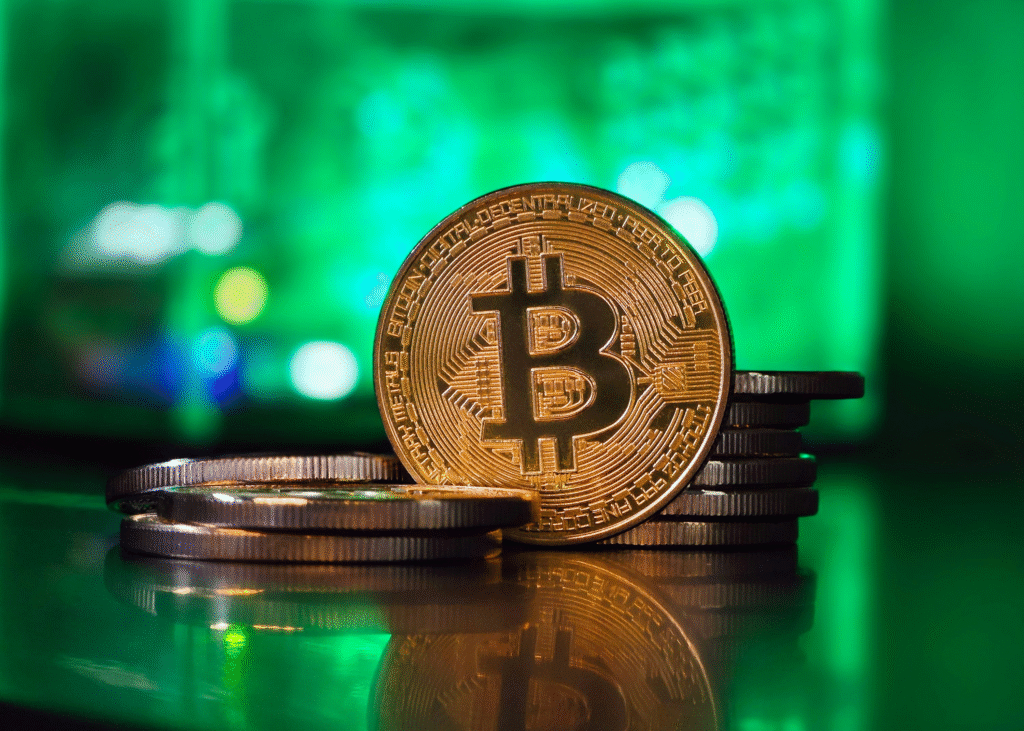Bitcoin has always had big ups and downs, but this last drop feels different. A tsunami of caution has swept through global markets in the past few weeks, and digital assets have been at the core of it. Cryptocurrencies are plunging significantly as investors pull back from riskier bets. This is similar to the tension that has been affecting technology stocks, interest rate forecasts, and the overall mood of the market.
The plunge was quick and sharp. Bitcoin, the most popular and highly watched cryptocurrency in the world, plummeted more than five percent and hit a seven-month low of $81,668. Ether, the second-largest coin by market value, fell more than six percent to about $2,661, its lowest level in four months. For anyone who have been following cryptocurrencies for a long time, these data show a truth that often gets lost in market rallies: digital currencies are still quite susceptible to changes in global risk appetite. This week’s sell-off has brought down both Bitcoin and Ether by about 12 percent, which adds to the stress in an already unstable situation.
The mood around the decline is just as important as the decline itself at this moment. People are worried that the prices of stocks in high-performing sectors, especially artificial intelligence, may have gone up too quickly. Tech stocks that seemed like they would never stop going up have unexpectedly changed course. At the same time, aspirations for swift U.S. interest rate cuts—hopes that had made people feel good earlier in the year—are evaporating. When investors start to worry where rates are going in the near future, riskier assets like cryptocurrencies tend to get hit the hardest.
People who actively watch the crypto market have been talking about what this drop could signal. Tony Sycamore, a market analyst at IG, put it in very clear terms: “If Bitcoin’s fall is telling a story about risk sentiment as a whole, then things could start to get really, really ugly, and that’s the concern now.” His statements show how uneasy people in the financial world are becoming. Bitcoin has been seen in the past as a way to protect against problems in the traditional market, but events like this illustrate that it often acts more like a high-beta asset, making anxieties in the market worse instead of better.

The bigger numbers tell an even more striking story. CoinGecko says that the overall market value of cryptocurrencies has dropped by around $1.2 trillion in just six weeks. Seeing numbers like that can seem unreal, especially for people who got into crypto when it was more hopeful. This shows how quickly people’s feelings can change and how unstable these markets still are, even after more than ten years of growth and institutional engagement.
Not even regulated financial products meant to make bitcoin look more trustworthy have proven safe. On the day, a few Hong Kong-listed spot Bitcoin exchange-traded funds from China AMC, Harvest, and Bosera fell by almost seven percent. These ETFs were supposed to give investors a safer and more organized method to get into Bitcoin, but the current market upheaval illustrates that structure alone can’t keep investors from losing money when sentiment changes. As someone who has seen the growth of crypto ETFs from their first concepts to their global launches, these kinds of things show how limited they are. They make the asset class more accessible and give it more credibility, but they can’t change how volatile the market they monitor is.
There is a human component to this as well, which is something that gets overlooked in conversations that are full of charts and market cap data. For a lot of individual investors, crypto is more than just an asset. It stands for hope—hope for financial freedom, early success, or being a part of a future created on new technologies. When the market drops this quickly, it can feel like it’s happening to you. It can bring back memories of past crashes and make people worry about whether the market will bounce back like it did before. I’ve felt that twinge of doubt myself during past downturns. Every crypto cycle brings excitement, new opportunities, and sometimes depressing reminders that no market grows in a straight line.
At the same time, these declines tend to show investors things that they sometimes forget about when the market is strong. They remind us that markets depend a lot on what people expect, how confident they are, and the stories that grow around them. Even the strongest assets might fail when those stories lose their power. Even though cryptocurrencies are new and innovative, they are nonetheless affected by traditional financial factors. The idea that Bitcoin may be a stable, inflation-proof store of wealth is still changing, but it is not immune to changes in the global economy.
Also, it’s important to remember that risk aversion doesn’t just happen. There are a lot of things that are uncertain right now, like the direction of U.S. monetary policy, whether AI-driven values can be maintained, geopolitical concerns, and slower economic signals in important areas. When investors start to wonder what the following six months will be like, they often cut back on their investments in assets that are likely to change. Crypto is at the top of the volatility scale, therefore it naturally feels the effects first.
Still, downturns like this make us think about how mature the crypto ecosystem is. In the past, every significant correction has led to new advancements, such as better technology, clearer regulations, or stronger investment frameworks. Sometimes, market hardship makes change necessary. Even if the economy is in a depression right now, developers keep developing, exchanges keep improving their systems, and institutions keep reevaluating their long-term plans. The ground shakes, although it doesn’t freeze very often.
As Bitcoin and other cryptocurrencies go through this hard patch, investors and onlookers are torn between worry and interest. Will the market settle down after people stop worrying about interest rates? Will AI stocks pick up speed and boost the mood of the market? Or is this the beginning of a longer trend away from risk? These problems don’t have clear answers, and that uncertainty makes people more careful nowadays.








